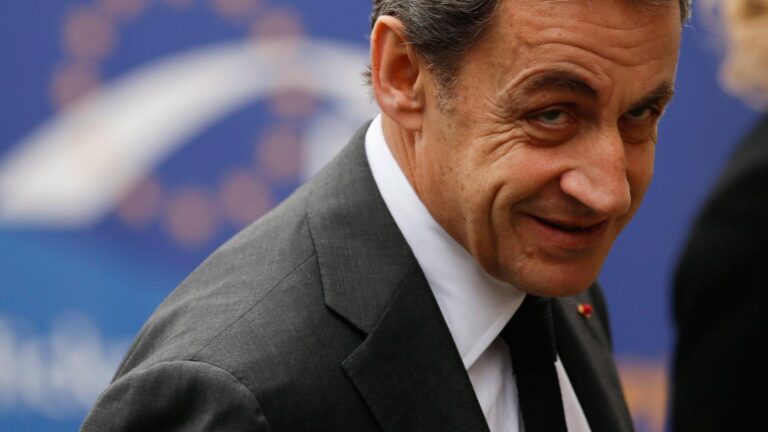Former French President Nicolas Sarkozy has been sentenced to prison, marking a historic moment in the nation’s political landscape. In a landmark ruling covered extensively by France 24, Sarkozy was convicted and ordered to serve time behind bars, a rare fate for a former head of state. This development follows years of legal battles and investigations into allegations of corruption and influence peddling that have shadowed the ex-leader since his time in office. The sentence not only underscores the French judiciary’s commitment to accountability but also raises significant questions about the future of political ethics in France.
Sarkozy Sentenced to Prison in Landmark Corruption Case
Former French President Nicolas Sarkozy has been handed a prison sentence in a decisive corruption trial that has sent shockwaves through the nation’s political landscape. The court found Sarkozy guilty of attempting to bribe a magistrate in exchange for confidential information to avoid investigation, marking an unprecedented legal outcome for one of France’s most prominent political figures. This landmark verdict not only underscores France’s intensified efforts to tackle corruption at the highest levels but also sets a new precedent for judicial accountability.
Key elements of the case included:
- Alleged illicit exchange of favors between Sarkozy and Judge Gilbert Azibert
- Use of a confidential letter to seek privileged judicial information
- Legal scrutiny spanning over several years with extensive investigation
- Sentencing that may impact Sarkozy’s political future and legacy
| Aspect | Details |
|---|---|
| Sentence | 3 years (2 years suspended, 1 year prison) |
| Charges | Corruption, influence peddling |
| Trial Duration | Over 3 years |
| Appeal Status | Pending |
Implications for French Political Landscape and Judicial Independence
The incarceration of former President Nicolas Sarkozy marks a critical juncture in France’s political narrative, signaling a shift toward heightened accountability among the nation’s highest echelons of power. This unprecedented judicial outcome underscores the increasing intolerance for corruption allegations, regardless of a figure’s former status. Political analysts suggest that this development could catalyze a reconfiguration of party dynamics, as rival factions recalibrate strategies in anticipation of a more transparent and ethically scrutinized political environment.
Key effects on the political environment include:
- Strengthening of anti-corruption mandates within mainstream parties.
- Renewed public discourse on ethical governance and transparency.
- Pressure on emerging leaders to distance themselves from past malpractices.
From the judicial perspective, Sarkozy’s sentencing is seen as a testament to the independence of France’s legal system. The case highlights the judiciary’s capacity to challenge political immunity and reinforces citizen trust in legal processes. However, observers caution that the path ahead demands vigilance to maintain this balance, especially as political influence attempts to sway judicial outcomes.
| Aspect | Impact |
|---|---|
| Political Accountability | Enhanced scrutiny of elected officials |
| Judicial Independence | Reinforced separation of powers |
| Public Confidence | Improved trust in legal impartiality |
Lessons for Political Accountability and Strengthening Anti-Corruption Measures
The incarceration of France’s former president signals a decisive moment for political accountability worldwide. It underscores the imperative that no individual, regardless of stature, is above the law. This high-profile conviction sets a precedent that strengthens public trust in judicial systems and emboldens anti-corruption agencies to pursue justice without fear or favor.
To reinforce anti-corruption frameworks effectively, governments and institutions must focus on several key priorities:
- Transparency: Ensuring open access to information about political financing and public spending.
- Independent Oversight: Empowering impartial bodies to investigate and prosecute corruption cases.
- Whistleblower Protection: Safeguarding individuals who expose wrongdoing from retaliation.
- Public Engagement: Encouraging citizens to hold leaders accountable through civic education and participatory governance.
| Measure | Impact |
|---|---|
| Stronger Legal Frameworks | Deterrence and swift justice |
| Enhanced Media Freedom | Increased exposure of misconduct |
| International Cooperation | Cross-border enforcement |
| Civic Education Programs | Empowered electorate |
To Conclude
Nicolas Sarkozy’s imprisonment marks a historic moment in French politics, underscoring the judiciary’s resolve to hold even the highest offices accountable. As France grapples with the legacy of its former president, the case serves as a stark reminder of the challenges facing political integrity and the rule of law in the country. The unfolding developments will undoubtedly continue to captivate both national and international observers in the months ahead.




